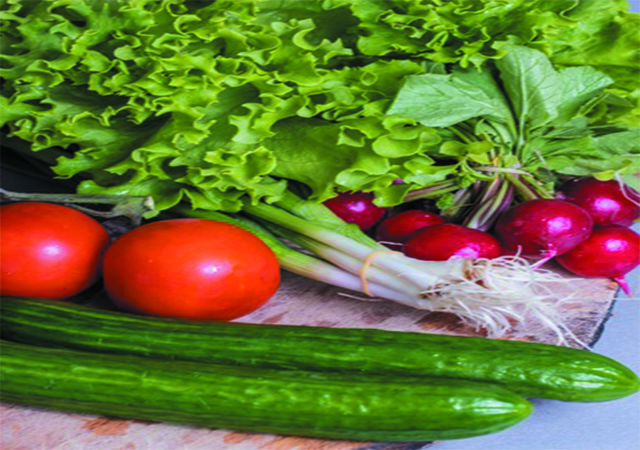Is a sustainable diet better than a shock diet?
Dietitian Duygo Bulut noted that shock diets implemented for rapid weight loss create a cycle like weight gain and weight loss, and said that the right thing is a "sustainable diet." Dietitian Bulot offered plenty of advice, from eating slowly and chewing a lot to eating vegetables of all colors.
Dietitian Duygu Bulut provided important information about the "Sustainable Nutrition Plan," noting that diets for weight loss increase as the weather warms. Noting that scientific studies have shown that the weight that goes away quickly with shock diets returns in a short time, “Unfortunately, shocking diets or detox programs are applied to lose excess weight in a short time. However, the weight that goes off quickly with these diets comes back in a short time, and scientific studies show it. The ketogenic diet, gluten/lactose-free diet, liquid detox and many other diet programs are offered. None of these are sustainable eating methods that you can continue throughout your life. When you're aiming to lose weight anyway, there shouldn't be big differences before and during the diet or the period when you are very hungry."
Don't fall into a treadmill
Dietitian Bulot emphasized that the diet can be maintained for life if it is adapted to the nutritional requirements and life of the person, if it is applied in the right amount and if it is a diet that includes dietary diversity. Expressing that results-oriented diets are so tiring, dietitian Bulot said, “Diet menus that are made over and over again get into a vicious cycle like weight gain and loss. Your goal should be to pursue a process and not just a result. The weight lost should be maintained from During a sustainable diet thereafter."
Eat vegetables of all colors
Emphasizing the need to increase dietary diversity, dietitian Bulot said, “Eating green vegetables all the time will of course be boring for some people. Include dark green leafy foods, as well as protein sources such as red, purple, and orange foods and fish/legumes instead of meat Low fat and unsalted chicken in your diet The amount of calories everyone should be eating Noting that it varies with age, height and physical activity of a person, Dietitian Bulut stated that nutrition plans are therefore unique to the individual and only a dietitian can determine the amount Occasion.
"Eat slowly, big pot"
Noting that chewing a lot and eating slowly is an important eating habit, said dietitian Bulot, “Be careful how long you take to finish your meals. If it is short, try to increase it to 20 minutes. Another important habit is water consumption. We should consume 30ml. of water per kilo in winter and 35ml in summer.Tea or coffee is not a substitute for water.On the contrary, when drinking water and tea it is necessary to consume more water, because the body needs water to filter tea and coffee through the kidneys.
Dietitian Bulot noted the need to break the habit of eating sweets or junk food every day, "The sweet thing you eat once a week is not a problem, but this should not be a habit."
Stay away from packaged foods
Dietitian Bulot emphasized the need to stay away from packaged foods and alcoholic and carbonated drinks, “This includes sausages, salami, ready-made sandwiches and sauces. Avoid alcoholic and fizzy drinks. For example, if you drink a soft drink every day of the week or you drink alcohol 3 days a week, Aim to reduce frequency and quantity.Also try to consume less animal foods and plant foods.
"Stop before the bus"
Dietitian Bulut stated that the following can be done in order to create a sustainable nutrition plan: “When you go to the market, you plan what you are going to cook that week, so prevent wastage and do not order from outside at the last minute. Try to be more active. If you have Favorite sport Make sure you spend some time doing tennis, swimming, cycling and yoga or try walking for 45 minutes - 1 hour 3-4 days a week Walk to the market, get off the bus early and walk Review your daily habits and try to turn them into habits You can move it more.



Comments
Post a Comment